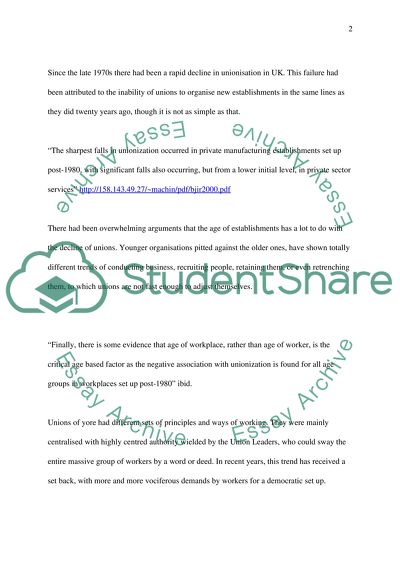Cite this document
(“Trade unionism in the UK Essay Example | Topics and Well Written Essays - 2500 words”, n.d.)
Trade unionism in the UK Essay Example | Topics and Well Written Essays - 2500 words. Retrieved from https://studentshare.org/miscellaneous/1519080-trade-unionism-in-the-uk
Trade unionism in the UK Essay Example | Topics and Well Written Essays - 2500 words. Retrieved from https://studentshare.org/miscellaneous/1519080-trade-unionism-in-the-uk
(Trade Unionism in the UK Essay Example | Topics and Well Written Essays - 2500 Words)
Trade Unionism in the UK Essay Example | Topics and Well Written Essays - 2500 Words. https://studentshare.org/miscellaneous/1519080-trade-unionism-in-the-uk.
Trade Unionism in the UK Essay Example | Topics and Well Written Essays - 2500 Words. https://studentshare.org/miscellaneous/1519080-trade-unionism-in-the-uk.
“Trade Unionism in the UK Essay Example | Topics and Well Written Essays - 2500 Words”, n.d. https://studentshare.org/miscellaneous/1519080-trade-unionism-in-the-uk.


